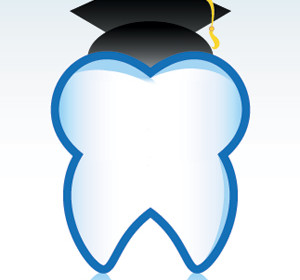
How Smart are those Wisdom Teeth?
Ever wondered how wisdom teeth got their name?
Are they smarter than the rest of your teeth? Well, the wisdom teeth, which are the maxillary and mandible third molars, can be seen all the way at the back of the jaw. They are called as such because they are the latest to be developed. Third molars have been called the “teeth of wisdom” since the 17th Century and it later evolved to “wisdom teeth” in the 19th Century.
Since they generally appear between the ages of 17 and 25, the age where people reach adulthood, it is thought that they are called as such because they appear during the age when a person is much “wiser” than when the other teeth have erupted. We can see that the eruption of the wisdom teeth is a sign that you have gone way past the carefree days of being a child and you have entered the realm of responsible adulthood. Most adults have, in general, four wisdom teeth. However, it is also natural to have fewer or more, these extras are called supernumerary teeth.
Having wisdom teeth were once extremely useful, but now, it serves a little purpose because of the change in our dietary needs. As time went on, our eating habits have also changed. Coarse food was once in our diet, which caused teeth to wear down. As the teeth take up lesser space in the jaw over time, they were forced to work harder and develop a larger bone. This instance created room for the wisdom teeth in the mouth for them to come in. Nowadays, processed food and modern changes in dentistry made the wisdom teeth less important because of the reduced wearing down of the teeth, causing less space in the jaw for the wisdom teeth to be accommodated. This factor causes the wisdom teeth to be impacted or abnormally positions causing it not to fully erupt.
Because of certain symptoms like abnormal positioning and other common impacts on the teeth, some people choose to have their wisdom teeth removed through an oral surgery. Wisdom tooth removal may not be necessary if it is being cleaned as part of the daily hygiene process, and if the teeth are healthy, fully erupted or have grown in completely and has correct positioning and biting with the opposite tooth.
Some symptoms that require oral surgery or the removal of the wisdom teeth include:
- Wisdom Teeth have emerged through the gums. This instance increases the possibility of having a bacterial infection in the mouth called pericoronitis.
- Having non-fully erupted wisdom teeth. This can cause crooked growth and may damage other teeth.
- A cyst, a fluid-filled sac, develops around the non-erupted tooth. This can damage the surrounding tissues and bones, and even affect other teeth.
- Even without experiencing pain, if your wisdom teeth are causing decay, infection, crowding or damaging other teeth it is best to have it removed to lessen emergence of problems after some time.
If you’re planning to have your wisdom teeth removed through oral surgery, consult us first. Ask us about the best way to deal with your wisdom teeth growth, position and health.






